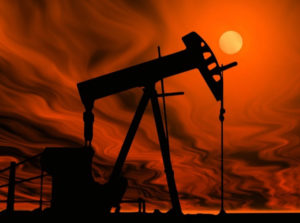Smoke from Canadian wildfires obscuring New York City’s
skyline on June 7, at 2pm. Source: EarthCam
Just three days after President Biden signed the Fiscal Responsibility Act, mandating the construction of the super-emitting Mountain Valley Pipeline, smoke from Canadian wildfires clouded the East Coast, poisoning our air and turning skies an eerie orange. The smoke originated in eastern Canada, where 10.6 million acres of land have already burned in fires that were markedly more intense due to the fossil fuel-driven climate crisis.
Earthworkers based in Washington, D.C., Baltimore, Philadelphia, and New York City could smell, taste, see and breathe the consequences of the fires even inside our homes. The front lines of this climate crisis are communities across Canada, where an unprecedented wildfire season is affecting every province across the country. (Please consider supporting wildfire relief funds such as this one; many thanks to our friends at Destination Zero for keeping us posted.) Hundreds of miles away from the frontlines, we felt the effects of the hazardous air on our bodies, including headaches, stinging eyes, and coughing. Even then we were among the privileged few to have air-conditioned housing and the ability to stay inside while we worked. Many residents of our cities are unhoused, and many more were forced to leave their homes to go to work or school. For a time, New York City and Philadelphia had the worst air in the world; D.C. hasn’t seen maroon hazard warnings in decades.
Aside from the incredible harm the climate crisis causes peoples’ physical health, the mental health strain cannot be understated. According to a December 2022 report from the Yale Program on Climate Change Communication, approximately 10% of Americans “report experiencing symptoms of anxiety because of global warming for several or more days out of the last two weeks. Almost as many report experiencing symptoms of depression because of global warming.”
Like many people working for climate and environmental justice, the climate crisis has always been a part of our lives. For years we’ve heard about natural disasters becoming increasingly destructive, affecting people around the world; conflicts beginning and growing because of drought; millions fleeing their homes because of floods; nightmarish projections of what the world will look like in ten, thirty, fifty, a hundred years without radical climate action. And for years, we’ve watched governments at all levels and of all parties dismiss our pleas for climate action. Whether they insist that the climate crisis is a hoax or not a short-term threat, or promise legitimate action without actually phasing out fossil fuel extraction, no one is doing what must be done on the scale that is necessary.
As recent peer-reviewed research underscores the direct connection between oil and gas pollution and increasing wildfires in North America, Canadians are calling on their federal government to institute a cap on oil and gas emissions. Here in the United States, President Biden signed four Executive Orders relating to the climate crisis within six months of his inauguration. However, he also insisted Democrats vote for and signed the Fiscal Responsibility Act, mandating construction of the Mountain Valley Pipeline, which will produce 89,526,651 metric tons of greenhouse gasses–the equivalent of 26 coal plants or 19 million passenger vehicles. Similarly, last year he pushed for support for and eventually signed the Inflation Reduction Act, which will have serious consequences for communities on the frontlines of oil, gas, and hardrock mineral extraction.
President Biden can still answer the call to action he made during 2021 UN climate talks: “We meet with the eyes of history upon us. Will we do what is necessary? Or will we condemn future generations to suffer?” Here’s what he can do:
- Declare a climate emergency, unlocking statutory authority including the power to reinstate a crude oil export ban and promote rapid clean energy development.
- Impose new methane pollution standards for the oil and gas industry through the finalization of an EPA rulemaking; and
- Issue new hardrock mining rules under current law to protect people and land from the harms of hardrock mining pollution and ensure a just transition to clean energy.
In the aftermath of record-setting air pollution that brought the climate crisis to the front door of millions of Americans, President Biden can demonstrate the climate leadership we have been waiting for.
Trying to comprehend the scope of the climate crisis is overwhelming and terrifying. Experiencing it gives that fear an entirely new meaning. We genuinely hope that federal policymakers will reevaluate their plans for climate action in the wake of these fires. The wellbeing and prosperity of everyone on Earth depends on Canada, the United States and other Global North countries rapidly and aggressively decreasing fossil fuel extraction and usage. It is a massive challenge, and one the federal government must take seriously, lest last week’s smoke worsen from a freak anomaly to a nightmarish, ever-present reality.



